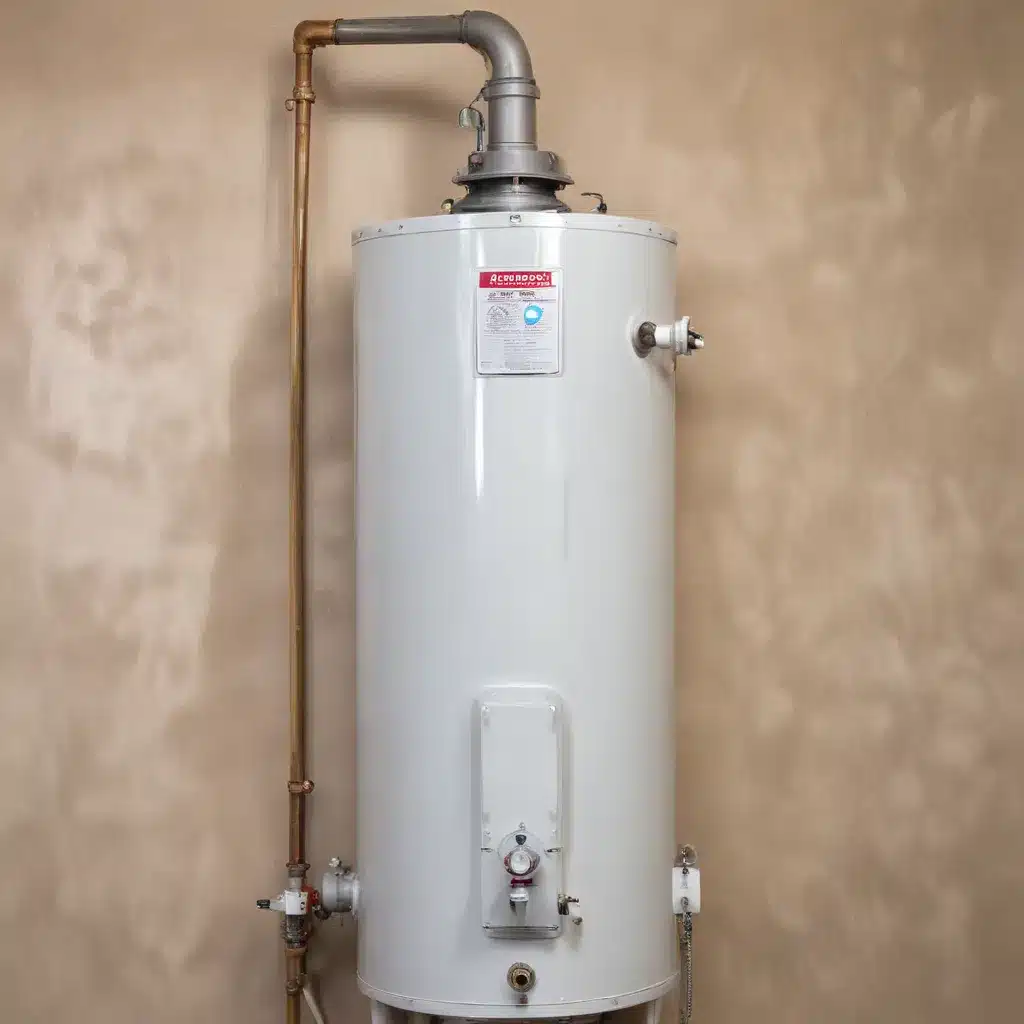
Understanding Your Home’s Hot Water Requirements
When it comes to selecting a new water heater, choosing the right size is crucial. A properly sized water heater will not only meet your household’s hot water demands but also operate more efficiently, saving you money on energy costs in the long run. As an experienced electrical expert, I’m here to guide you through the process of determining the ideal water heater size for your home.
The first step in selecting the right water heater size is to understand your household’s hot water usage. Consider factors such as the number of people living in your home, the number of bathrooms, and the frequency of activities that consume hot water, like showering, laundry, and dishwashing. These will all contribute to your peak hour demand – the highest amount of hot water needed during a single one-hour period.
To estimate your peak hour demand, the U.S. Department of Energy recommends looking at the first hour rating (FHR) of the water heater. The FHR indicates the number of gallons of hot water the heater can supply in the first hour of use when the tank is fully heated. You’ll want to choose a water heater with an FHR that matches or exceeds your peak hour demand.
Determining the Ideal Tank Capacity
For a traditional storage water heater, the tank size, measured in gallons, is another key factor to consider. The general guideline is that a family of four can be adequately served by a 40-50 gallon water heater. However, this is just a starting point, as your specific needs may vary.
According to CenterPoint Energy, you can estimate the necessary tank capacity based on the number of household members and the number of bathrooms in your home. For example, a family of two with one bathroom and a clothes washer may only need a 30-gallon water heater, while adding an extra bathroom would require an additional 3-1/2 gallons to the tank capacity. If you have an automatic dishwasher, you’ll also want to add about 5 gallons to the total.
For a more accurate calculation, it’s best to consult a qualified contractor who can assess your specific hot water usage patterns and recommend the appropriate water heater size. They can also provide guidance on other important factors, such as the water heater’s energy efficiency, fuel type, and installation requirements.
Exploring Tankless Water Heater Options
In addition to traditional storage water heaters, tankless or demand-type water heaters are becoming increasingly popular due to their energy efficiency and space-saving benefits. Unlike storage tanks, tankless water heaters heat water on-demand, eliminating the need for a large storage tank.
When sizing a tankless water heater, the key consideration is the flow rate, which is the amount of hot water the unit can deliver at a given time, typically measured in gallons per minute (GPM). As explained by Bob Vila, you’ll want to determine the flow rate needed to meet your household’s peak hot water usage, such as multiple simultaneous showers or running the dishwasher and washing machine at the same time.
Most tankless water heaters are rated to provide a 70°F temperature rise at a certain flow rate, such as 5 GPM for gas-fired models and 2 GPM for electric. To size your tankless water heater, consider the number of bathrooms, appliances, and other hot water-consuming fixtures in your home, and choose a model with a flow rate that can accommodate your peak usage.
One advantage of tankless water heaters is their compact size, often measuring just 20 inches high, 14 inches wide, and less than 10 inches deep. This makes them an excellent choice for homes with limited space, as they can be wall-mounted in tight areas where a traditional storage tank would not fit.
Exploring Solar Water Heating Options
For homeowners seeking a more sustainable and eco-friendly hot water solution, solar water heating systems are worth considering. These systems use the sun’s energy to heat water, reducing your reliance on traditional fuel sources and lowering your energy bills.
When sizing a solar water heating system, the U.S. Department of Energy recommends using the following general guidelines:
- For the first two family members, plan for around 20 square feet of collector area.
- For each additional person, add 8-12 square feet of collector area, depending on your location (more in northern climates).
- The storage tank size should be approximately 1.5 gallons per square foot of collector area, or up to 2 gallons per square foot in very warm, sunny climates.
These calculations should be viewed as a starting point, as your specific site conditions, solar resource, and household hot water needs will all factor into the optimal system size. It’s best to consult with a qualified solar water heating contractor who can perform a detailed analysis and provide a customized system recommendation.
Maintaining and Upgrading Your Water Heater
Regardless of the type of water heater you choose, proper maintenance is crucial for ensuring its longevity and optimal performance. This includes regularly flushing the tank, checking the anode rod, and inspecting the temperature and pressure relief valve. By staying on top of maintenance, you can extend the lifespan of your water heater and avoid unexpected breakdowns.
As your household’s hot water demands change over time, it’s important to reevaluate your water heater’s size and consider upgrading if necessary. Whether you’re replacing an aging unit or building a new home, taking the time to carefully select the right water heater size can pay dividends in the form of energy savings, improved comfort, and peace of mind.
At Volt Watt Electric, we are committed to helping homeowners navigate the complexities of electrical systems and appliances. Our team of experienced experts is dedicated to providing practical advice and in-depth insights to ensure your home’s electrical infrastructure is efficient, safe, and tailored to your unique needs. Contact us today to learn more about our services and how we can assist you in selecting the perfect water heater for your home.

